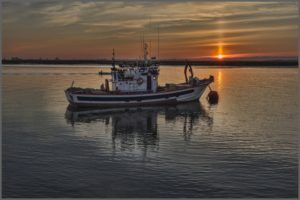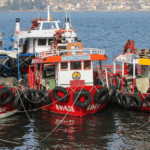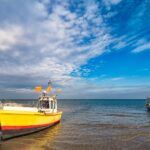Today, the Commission has adopted a proposal offering support from the European Maritime and Fisheries Fund to fishermen affected by the closure of the Eastern Baltic cod fishery to permanently decommission their fishing vessels.
Eastern cod is one of the key fisheries in the Baltic Sea, but the stock is in very poor shape. At the Council meeting on 14-15 October, fisheries ministers followed a Commission proposal and agreed to reduce fishing possibilities in 2020 to almost zero. While this step is necessary to give the stock a chance to recover, the Commission recognises that it also means severe and unavoidable economic hardship for the fleets and fishing communities traditionally targeting this stock. With today’s proposal, the Commission aims to mitigate the economic impact of the closure and extend a helping hand to those fishermen and women who will be hit hardest. The European Maritime and Fisheries Fund (EMFF) offers them financial support in this economically difficult situation.
Background
The ecosystem in the Baltic Sea has been in a fragile state for decades. However, it was only in 2019 that scientists warned that the environmental conditions have a much more important impact on Eastern Baltic cod than previously estimated. The Eastern Baltic cod stock is not expected to recover before 2024, even with no fishing at all.
The Commission, therefore, adopted first emergency measures in July 2019 prohibiting the fishing of Eastern Baltic cod until year-end. On 14-15 October 2019, the Council decided on necessary and unprecedented fishing restrictions for 2020, reducing the allowed catches for Eastern Baltic cod by 92%, and thus allowing bycatches only. In the same Council meeting, the Baltic countries had already endorsed environmental policies to recover the Baltic Sea ecosystem.
Given the strong reductions agreed for other Baltic stocks, the vessels and fleet segments most heavily impacted by the closure will not all be able to redirect their fishing activities to other species. The Commission therefore concluded that contingency measures were necessary, as well as further measures to address the specific situation of the Baltic Sea.
Permanent cessation was allowed under the EMFF until 31 December 2017. Today’s proposal would reintroduce this measure, under new, strict conditions, for the Eastern Baltic cod fleet until the end of the current EMFF period 2014-2020.
For More information
Press release – Baltic Sea: council agreement on 2020 catch limits
Press release – Commission approves emergency measures to protect eastern Baltic cod







Leave a Reply